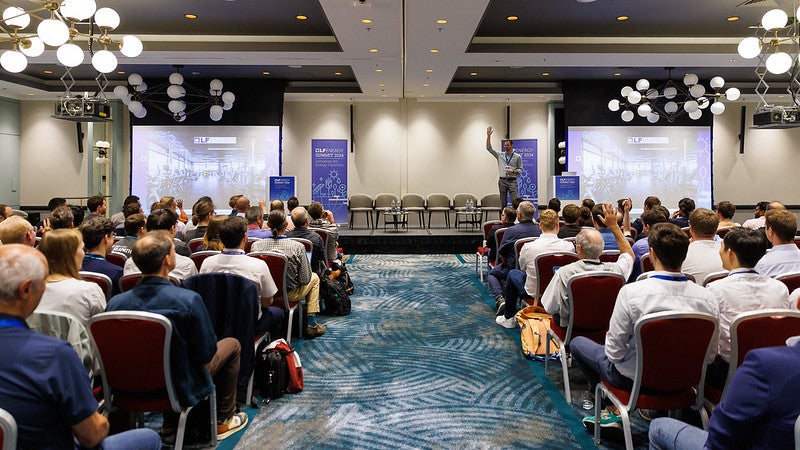Sold Out LF Energy Summit Accelerates Collaboration on Energy Transition Technologies
LF Energy Summit came to Brussels 5-6 September 2024, gathering a sold out crowd of 250 stakeholders from across electric utilities, technology vendors, policy makers, global energy companies, researchers, and more. The event featured 34 breakout sessions, five keynotes, seven lightning talks, nine live demos, seven working group and project meetups, and three interactive workshops.
The summit kicked off with LF Energy Executive Director Alex Thornton presenting an overview of LF Energy to the packed keynote audience. Alex outlined the challenges of the digital energy transition, and how collaboration through open source can address them.
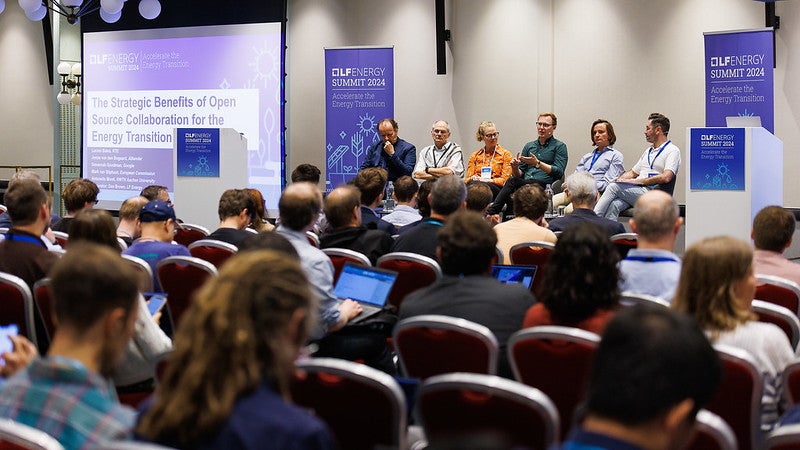 The other keynotes on day one consisted of an inspirational talk by Mark van Stiphout of DG Energy at the European Commission, on how digtalization can help the energy transition through improved operation of individual assets, and by a smarter operation of energy systems. van Stiphout was then joined on stage for a panel discussion featuring an hour-long panel featuring Lucian Balea of RTE, Savannah Goodman of Google, Antonello Monti of RWTH Aachen, and Jonas van den Bogaard of Alliander, moderated by Dan Brown of LF Energy. The panel delved into the benefits of open source collaboration from a variety of perspectives, including government, electrical utilities, researchers, and industry.
The other keynotes on day one consisted of an inspirational talk by Mark van Stiphout of DG Energy at the European Commission, on how digtalization can help the energy transition through improved operation of individual assets, and by a smarter operation of energy systems. van Stiphout was then joined on stage for a panel discussion featuring an hour-long panel featuring Lucian Balea of RTE, Savannah Goodman of Google, Antonello Monti of RWTH Aachen, and Jonas van den Bogaard of Alliander, moderated by Dan Brown of LF Energy. The panel delved into the benefits of open source collaboration from a variety of perspectives, including government, electrical utilities, researchers, and industry.
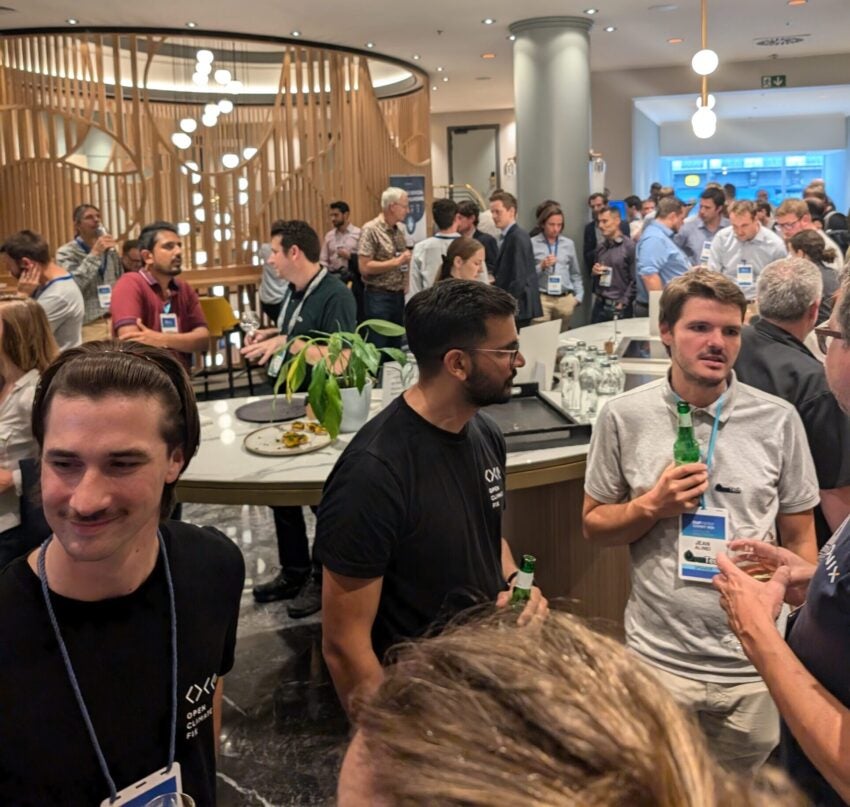 The rest of the day was filled with educational content, demos, and networking opportunities. Topic areas of focus on the first day included grid operations, data standards and tooling, and open source best practices. Subtopics such as AI, security, and data were all discussed extensively across the different subject areas of the presentations.
The rest of the day was filled with educational content, demos, and networking opportunities. Topic areas of focus on the first day included grid operations, data standards and tooling, and open source best practices. Subtopics such as AI, security, and data were all discussed extensively across the different subject areas of the presentations.
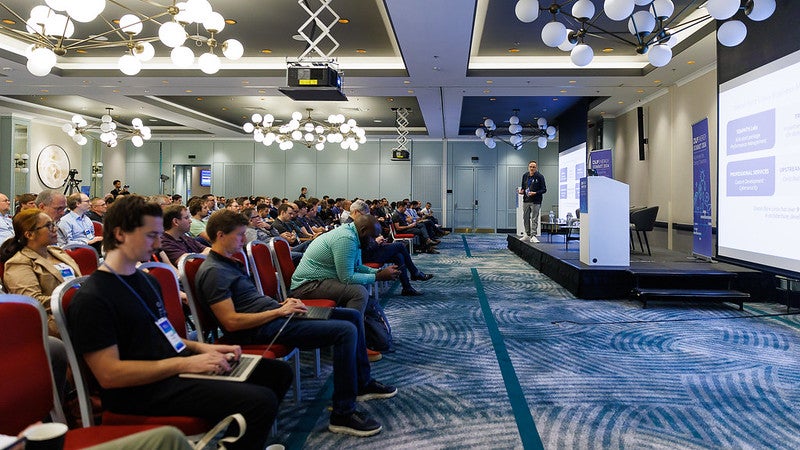 Day two commenced with Christophe Villemer of Savoir-faire Linux presenting a keynote on building an open source business. This topic is particularly important as utilities are looking to purchase enterprise-grade products and services built on top of open source, and vendors are delivering through profitable business models. Villemer provided concrete examples including from Savoir-faire Linux’s own experience, and how it is building a commercial offering around the LF Energy SEAPATH project.
Day two commenced with Christophe Villemer of Savoir-faire Linux presenting a keynote on building an open source business. This topic is particularly important as utilities are looking to purchase enterprise-grade products and services built on top of open source, and vendors are delivering through profitable business models. Villemer provided concrete examples including from Savoir-faire Linux’s own experience, and how it is building a commercial offering around the LF Energy SEAPATH project.
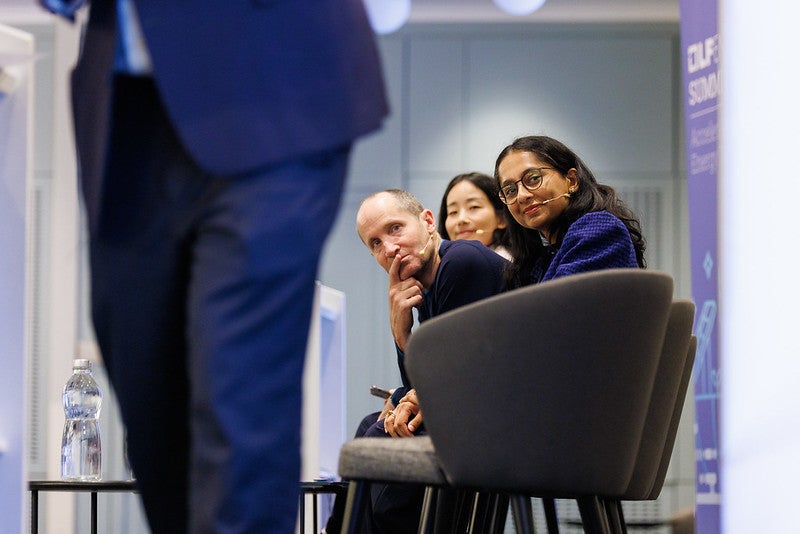 The keynotes on day two concluded with a panel moderated by Anders Pedersen of the World Bank, featuring Fang Fang of NEO BV, Neelima Janardhanan of Open Data Services Co-operative, and Dan Travers of Open Climate Fix. This panel focused on the important role of data sharing and infrastructure in the growing energy data infrastructure of emerging markets. This was an interesting tie-in for attendees who primarily work in the developed world and are working to transform legacy systems, providing a different perspective from developing markets.
The keynotes on day two concluded with a panel moderated by Anders Pedersen of the World Bank, featuring Fang Fang of NEO BV, Neelima Janardhanan of Open Data Services Co-operative, and Dan Travers of Open Climate Fix. This panel focused on the important role of data sharing and infrastructure in the growing energy data infrastructure of emerging markets. This was an interesting tie-in for attendees who primarily work in the developed world and are working to transform legacy systems, providing a different perspective from developing markets.
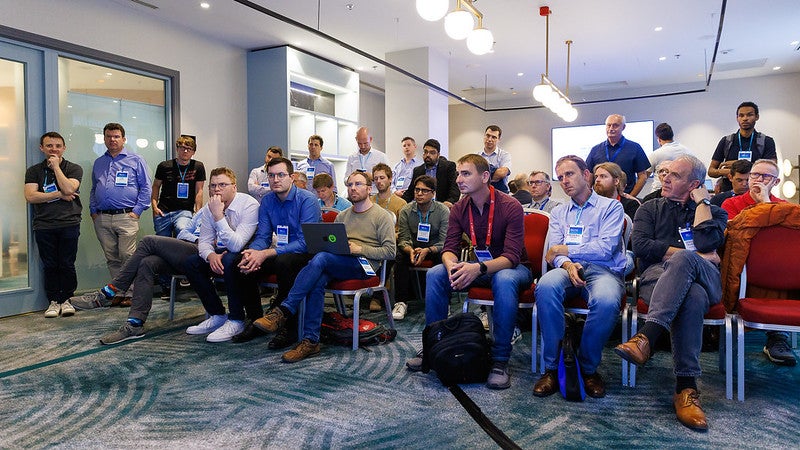 Beyond the keynote sessions, the topic areas of focus on day two were grid simulation and modeling, and digital substations. The digital substations presentations in particular were especially popular, with many attendees from electrical utilities and vendors to the sector looking at ways to advance technology in the area, and better understand how to move the digitalization of substations forward.
Beyond the keynote sessions, the topic areas of focus on day two were grid simulation and modeling, and digital substations. The digital substations presentations in particular were especially popular, with many attendees from electrical utilities and vendors to the sector looking at ways to advance technology in the area, and better understand how to move the digitalization of substations forward.
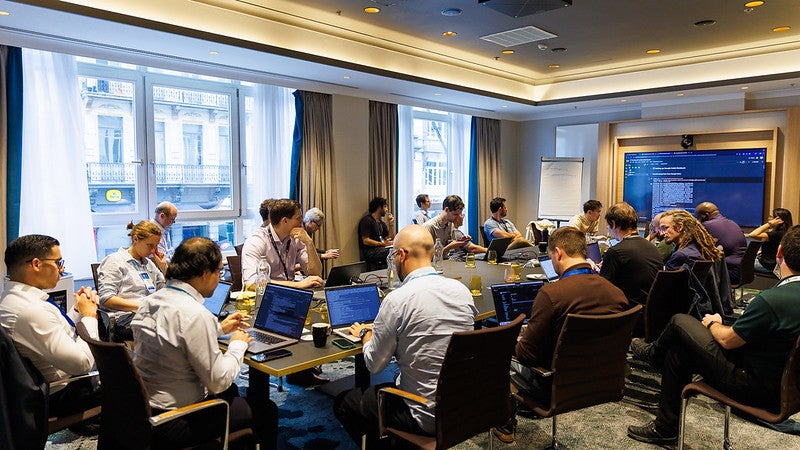 Additional networking opportunities, live demos, and collaborative workshops took place on the second day, providing interactive opportunities to not only learn, but also to advance open source projects and technologies for energy systems. While the LF Energy community is used to collaborating on an ongoing basis virtually, attendees reported that enormous progress was made in these two days thanks to meeting in-person. Many estimated that challenges solved and next steps planned during the event could have taken much longer to address had the community not gathered in this way. The energy at the event was palpable, and attendees left with a renewed passion for their projects and communities.
Additional networking opportunities, live demos, and collaborative workshops took place on the second day, providing interactive opportunities to not only learn, but also to advance open source projects and technologies for energy systems. While the LF Energy community is used to collaborating on an ongoing basis virtually, attendees reported that enormous progress was made in these two days thanks to meeting in-person. Many estimated that challenges solved and next steps planned during the event could have taken much longer to address had the community not gathered in this way. The energy at the event was palpable, and attendees left with a renewed passion for their projects and communities.
In the coming weeks, LF Energy will share videos of all keynotes and breakout sessions from the event, along with summaries of each of these sessions. Be sure to watch this blog to see those as they are released.
The LF Energy team and community looks forward to hosting even more and bigger events in 2025 to continue to accelerate the momentum we are feeling coming out of Brussels, and speed the energy transition and decarbonization of energy systems globally. Learn more about how you can get involved.
